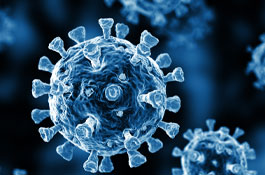
Wolbachia Mosquito Rearing Facilities
Reducing the spread of mosquito-borne diseases around the world
World Mosquito Program (WMP) | Brazil & Colombia | 2022-Ongoing
Dengue is the world's most rapidly spreading mosquito-borne diseasewith +50% of the world’s population at risk of infection.
Each year, an estimated 390 million dengue infectionsoccur around the world, resulting in up to 36,000 deaths.
Wolbachia bacteria reduces denguehospitalizations by 86%.
This method of Wolbachia mosquito rearinghas been successfully deployed in 11 countrieswithin the past decade.
Challenges
- The World Mosquito Program (WMP), in an effort to reduce the transmission of mosquito-borne diseases worldwide, sought to develop global mass mosquito production facilities and mobile labs.
- WMP needed a partner to support facility design and overall project management to develop production plants and facilities across the globe while navigating complex arrangements involving multiple regions, funding mechanisms, government bodies, commercial business, engineering standards, development approvals.
Solutions
- Assisted WMP in designing facilities for the mass rearing of Wolbachia, a symbiotic bacterium able to block the transmission of viruses when introduced to disease-carrying mosquito species. This method effectively "immunizes" mosquito populations against dengue and other viruses.
- 安全工作程序通过利用我们的往下cess in large-scale industrial and government agency projects, as well as our existing operations in several key regions including Brazil, Colombia, Australia, India, and Indonesia.
- Our Australian team is coordinating the design and site selection across Brazil and Colombia for multiple facilities, using our global expertise to navigate region-specific standards and procurement strategies.
- Helped WMP coordinate the development and installation of HVAC, energy, lighting, telecommunications, water, potable and wastewater treatment, and containment and quarantine infrastructure.
Highlights
- Using Wolbachia to immunize disease-carrying mosquito species has been successfully implemented as a self-sustaining, cost-effective method in 11 countries over the past decade, reaching over 10 million people.
- Wolbachia, which occurs naturally in half of all insect species, has proven effective against all four dengue virus stereotypes, with similar deployment programs reducing dengue incidents by 77% and hospitalizations by 86%.
- When completed, the Brazil facility will be equipped with two mosquito lines and clear separation between manufacturing spaces for mosquito strains from different regions or cities, able to produce 5 million mosquitoes a week.
“The movement of people from rural areas to cities, climate change, and international travel have all contributed to the increased global spread of viruses transmitted by the Aedes aegypti mosquito – including dengue, Zika, yellow fever, and chikungunya. Dengue is the world’s most rapidly spreading mosquito-borne disease, currently affecting more than half the world’s population and that number is projected to increase substantially over the next 50 years." “Working in conjunction with Hatch’s teams of highly skilled engineers will allow the World Mosquito Program to work closely with communities affected by mosquito-borne diseases and deliver scalable solutions allowing businesses and communities to thrive, both now, and into the future.”
Project numbers
4mobile labs completed Factory Acceptance Tests in Colombia
Up to100million Wolbachia mosquitoes to be produced weekly from the Brazil plant
86%projected reduction in dengue hospitalizations
77%projected reduction in dengue incidents
10million people reached by successful Wolbachia mosquito deployment
Services & technologies provided
Mastering a new world: embracing opportunities for positive change
How we can help you
Related Projects

Rochester, New York, USA

York, Ontario, Canada

IJmuiden, Netherlands

Minneapolis, MN, USA

Montreal, Quebec, Canada

Maine, USA

Hewitson Creek, Ontario

United Kingdom
See All

